Hamza Shaheem, a native of Kozhikode, recalls the very first time he was treated to a particular red sweet from a bakery near his home in Feroke. “It was so good!” he exclaims as he retrieves the memory from a treasure trove of others, all involving the Kozhikoden halwa.
Following that childhood experience, the halwa (Indian confectionery made out of flour, butter, milk and sugar) became an important guest at Shaheem’s home. It was the main celebrant on special occasions. “These included festivals and dinners when relatives would drop by,” he explains.
With a smile that suggests he would gladly binge on the dessert every day if he could, the halwa aficionado says it formed a cornerstone of his growing-up years.
So, the question begs to be asked why the natives of Kozhikode hold a reverence for this sweet. Shaheem credits the halwa’s simple but unique taste. “It is considered as an icon of Kerala,” he explains.
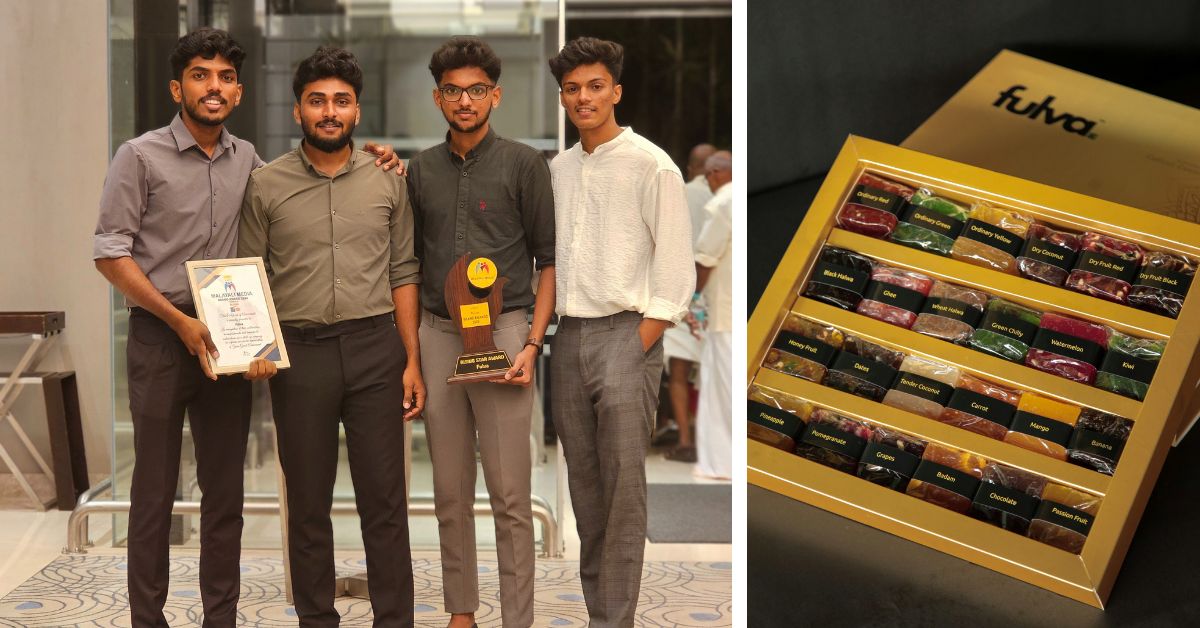
While he idolises the red variant (also the most popular flavour), the halwa enjoys a gamut of flavour quotients. And understandably, Shaheem considers himself lucky to have lived and grown up in a city where the halwa is mass-manufactured.
But we aren’t as fortunate. So, I’m going to divulge an important piece of information. You don’t need to be limited to Kozhikode anymore to get your fill of the halwa. Not just one, but an eclectic mix of 24 varieties will find their way to your doorstep if you wish.
A brainwave by four childhood friends is making this possible. Their startup Fulva — a Kerala-based brand serving authentic traditional food products sourced from small-scale producers — is completing a year of operations and has already touched a milestone with a Rs 84 lakh turnover. And as they share, their success story is written by the Kozhikoden halwa.
Square-shaped pieces of history
If you have visited Kozhikode, you’ll know it is almost a sacrilege to not return home with servings of the halwa, also considered a ‘prestige symbol’ in Kerala.
The halwa, as history tells us, has an interesting story that prequels its birth.
It is supposedly an Arab invention born around the 16th century when the community settled in Kerala. They were intent on gifting a piece of their culinary prowess to Kozhikode’s Zamorin (monarch). And the halwa made the cut. It went on to become an integral part of the spice trade and eventually part of the city’s gastronomy.
Many have been perplexed as to how a simple blend of water, sugar, corn starch, coconut oil, citrus salt, and flavourings birthed a dessert so exquisite that no successor dessert could compete with. In fact, it is said that no two blocks of halwa are the same as the ratio of each ingredient varies from proprietor to proprietor in Kozhikode.
Nevertheless, tourists and locals aren’t picky about these changing nuances so long as they get their fill of the Kozhikoden halwa.
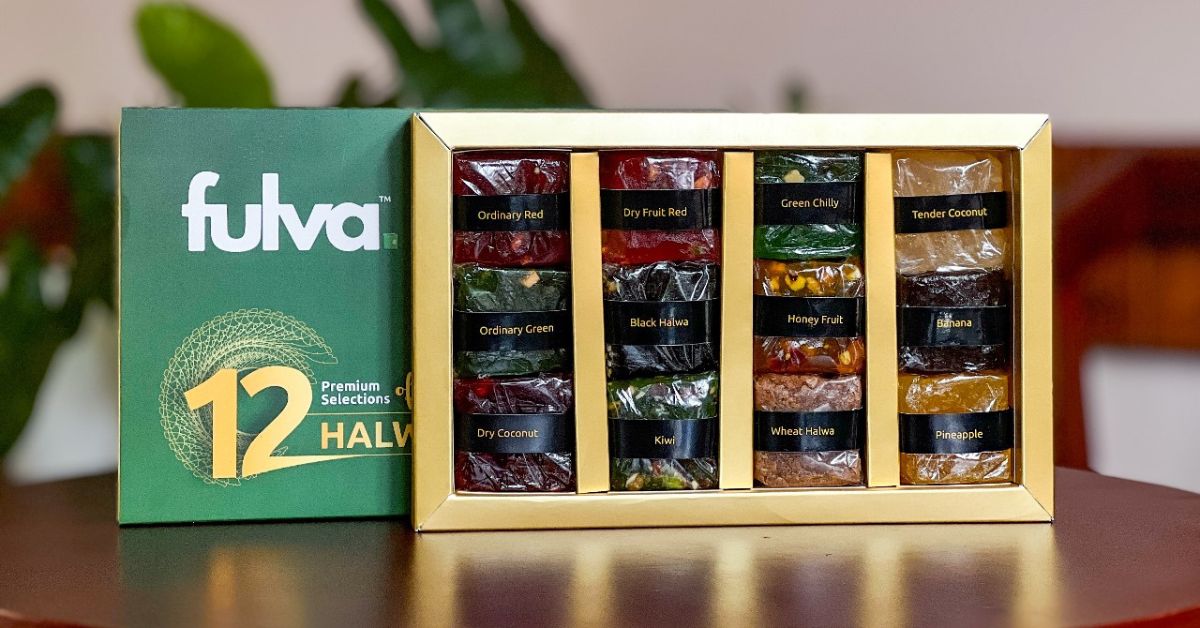
The same was the case with four childhood friends — Shabas Ahamed N C, Sanu Muhammed C, Irfan Safar S, and Thesreef Ali P K. Growing up, they gorged on the sweet treat. They considered it a usual feast. But, it was only when they moved out of their hometown to study, that they realised they were wrong.
The friends, who were studying in different colleges in Kerala, were berated with similar requests on each trip back home. “Enikk kurach Kozhikoden halwa venam (Get me some Kozhikoden halwa)!”
The request came from teachers, friends and hostel mates. And so on every return trip, the boys would return loaded with colourful squares of halwa, which were relished by its patrons. One day, the pattern was discussed over some chai and biscuits. They realised that people beyond Kozhikode and Kerala found profound delight in the halwa.
As the conversation furthered, it dawned on the four that while each had grown up eating the halwa, the preference for flavour differed. “We realised there are so many flavours that existed!” Sanu adds. And this sparked the idea of starting a platform that would be an umbrella of sorts for the different varieties of the Kozhikoden halwa.
Turning a childhood treat into a business
If you’re planning a trip to Kozhikode, I encourage you to take a walk down the ‘Mittaiteruvu’ (Sweet Street). Also known as SM Street (SM stands for sweetmeat), the lane is lined with shop upon shop, a never-ending blur of colour. Look closely and you’ll see the colour is lent by stacks of coloured halwa squares.
The street inception dates back to when the land was being ruled by the Zamorin. The ruler invited Gujarati sweetmeat makers to set up shop in the city. Today, it is a Pandora’s Box for halwas of every kind.
As the friends fortified the idea of Fulva, they say nostalgia was a main ingredient. Thesreef pitches in here, “I remember if anyone in my family was going abroad, the first thing they always bought to take along was the Kozhikoden halwa. We grew up with it, and the different flavours of the halwa have always made us huge fans.”
But Irfan interjects here, saying, “Despite the halwa being in the market for the last 500 years, there is still no established brand for it, as is the case with many traditional products.”
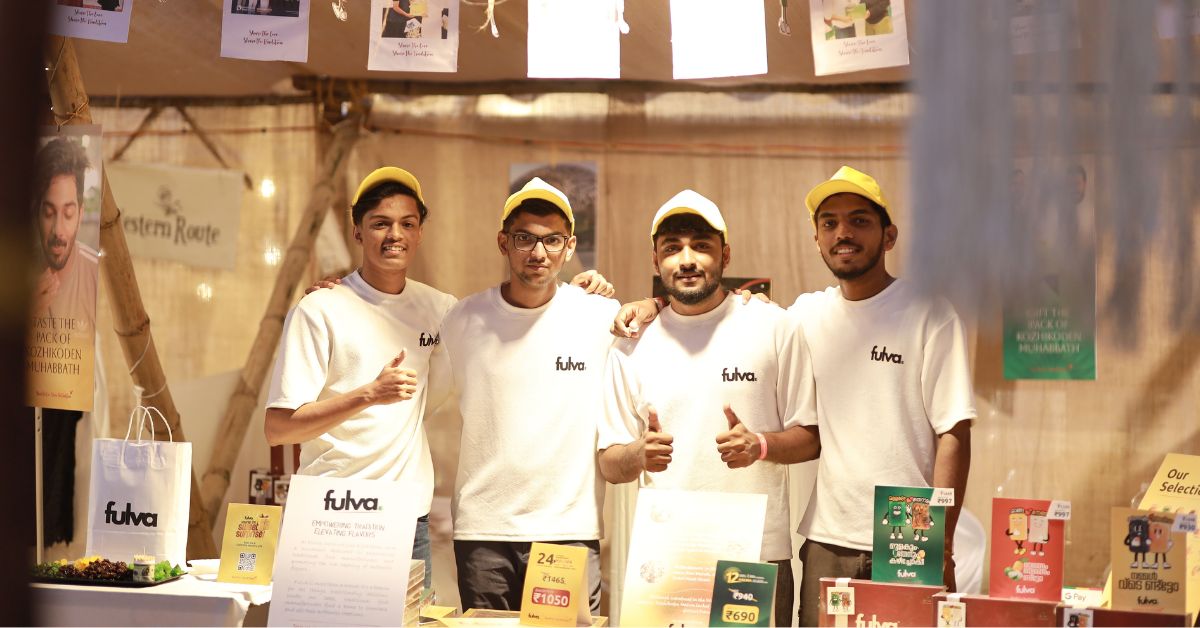
Fulva is looking to fill these gaps. The startup is looking to elevate the halwa from being a product that lies on a bakery shelf for hours before a customer walks in and decides to buy it, to a product of prestige — giving it its rightful dues.
While the venture started as a side hustle, the boys now spearhead it full-time. Recalling their first package, Sanu shares it was a box with 24 halwa varieties. Going beyond the usual red and green flavours, there was also an experimental dry coconut, green chilli, watermelon, kiwi, carrot, pomegranate, and passion fruit variety.
And who prepared the halwas? “The people who know best how to,” Sanu responds.
The friends, while debating on whether they should set up a manufacturing facility, decided to task the halwais (sweet makers) with this. “This makes the product more authentic,” Sanu explains adding that they possess a generational skill of making the halwa.
He continues, “These small-scale manufacturers have underutilised facilities. While they have a big capacity, they do not have much time to meet the demand.” Their observation was that in the quest to cut costs, these bakeries usually slack on some hygiene protocols.
So, Fulva makes a deal with the halwai, issuing them a set of SOPs that must be met before the partnership is started. “We insist on high-quality ingredients and the use of gloves and masks. We bear the cost of any excess requirements that are needed for the hygiene criteria to be met. This also includes renovating their facilities free of charge,” Sanu notes.
Extending a hand of help to the locals
A pain point that was anticipated when they set out to launch Fulva was that it would be tough to break the sentimental mindset people associated with while purchasing Kozhikoden halwa from a local shop.
Shabas explains, “Customers see halwa as a nostalgic treat, but we wanted to present it in a modern way that everyone would accept.” But, all doubts were erased when the friends’ first box featuring 24 premium variations of Kozhikoden halwa was an instant hit and the order tally crossed 300 right in the first month of starting out.
The startup delivers to foreign shores as well and has shipped its halwa to the UK, Turkey, Germany and UAE.
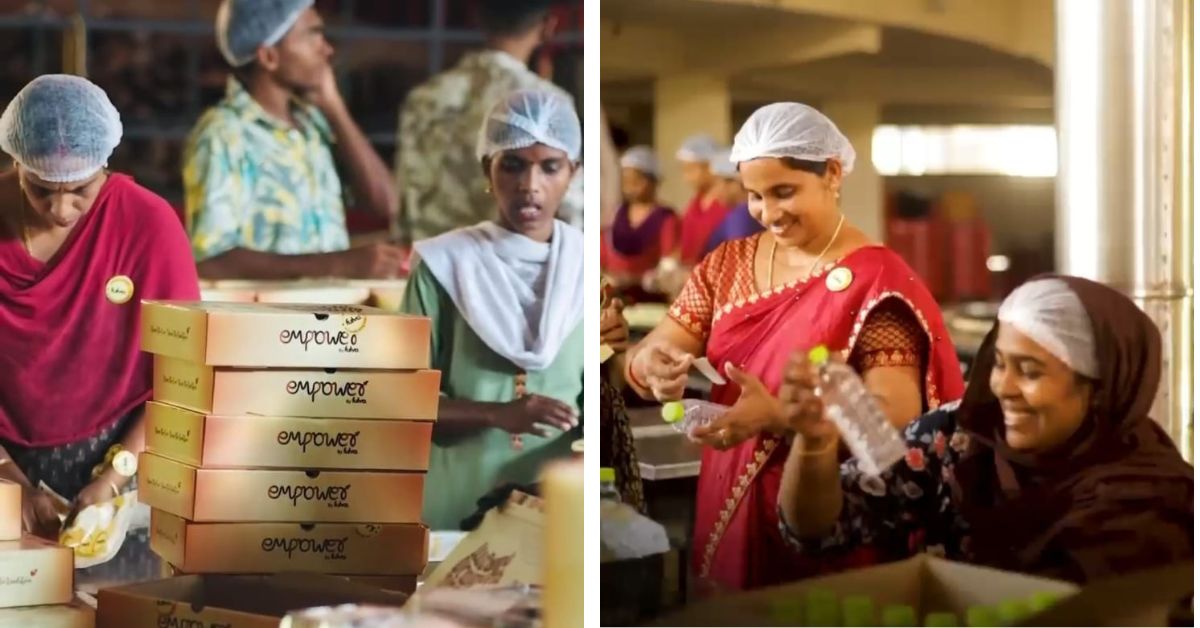
Taking us back to one of their campaigns ‘Empower by Fulva’ done in Ramadan this year, Sanu shares, “We thought it would be a great idea to have people break their fasts with a complete meal of Kerala specialities, including snacks and juices made by homemakers. We united 120 homemakers from Kozhikode who would prepare the items; tied up with auto drivers who would bring the food to our facility where it was packaged and then sent to counters which were manned by student volunteers.”
The customers collected the boxes from these counters in Kozhikode.
One of the homemakers Shabna who benefitted from the campaign, says, “This is my first time being part of a business, and I earned Rs 30,000 during this campaign in my free time!” She adds that the experience was even more amazing as the earning was a product of her passion.
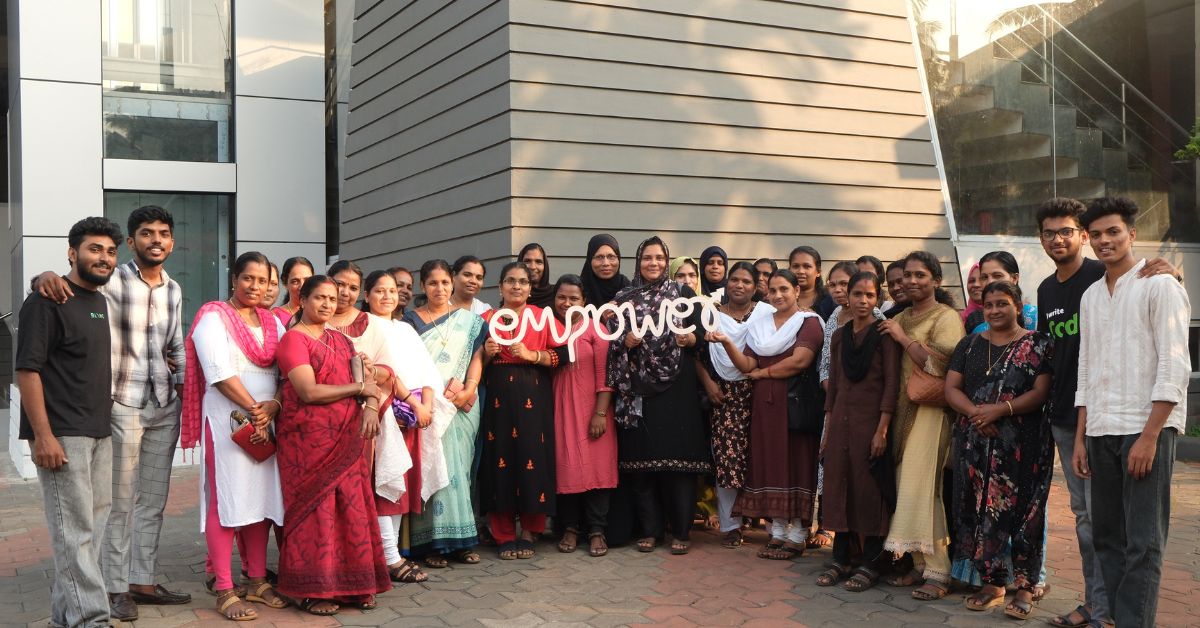
The friends say the concept could well become an arm of the business. Through the potential ‘Home to Home’ segment, the friends are attempting to go beyond Kozhikoden halwa and introduce authentic and traditional snacks prepared by homemakers and small-scale manufacturers that can be delivered to people’s doorsteps.
These will include samosas (a savoury pastry), Kozhikoden sweets, Kerala banana chips, and Malabar snacks like Kozhi ada (chicken bites).
“The plan is to preserve cultural heritage while embracing innovation,” Sanu concludes, chewing on something, that I think, enviously, is a piece of Kozhikoden halwa!
Edited by Pranita Bhat; All pictures: Fulva team
No comments:
Post a Comment